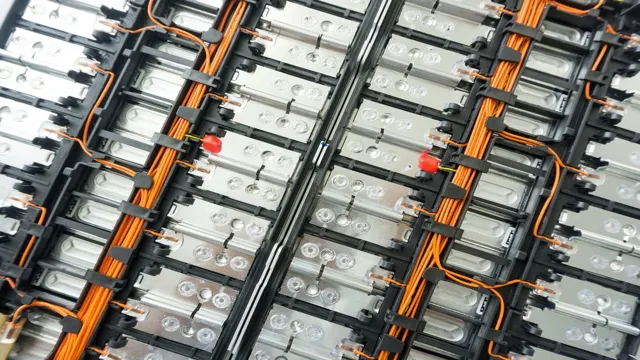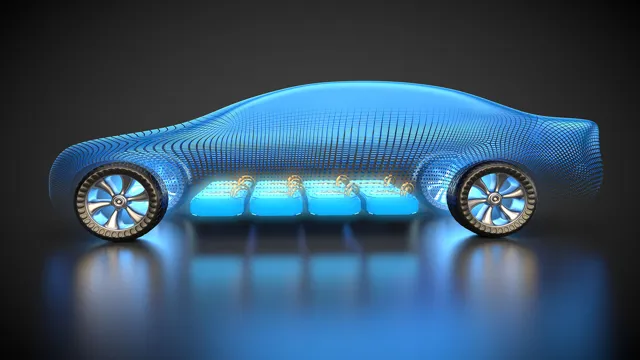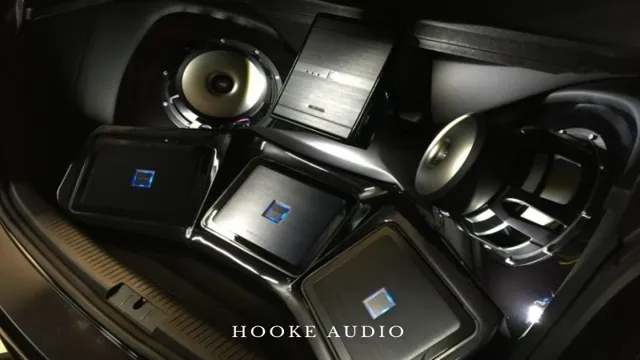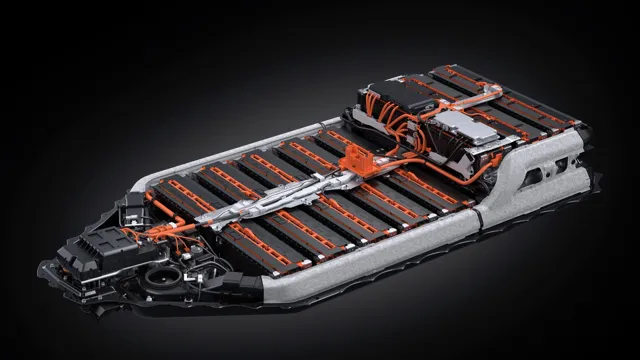Unpacking the Truth: Can Electric Car Batteries Really be 100% Recyclable?
Electric vehicles are becoming increasingly popular as concerns about carbon emissions and climate change are becoming more widespread. However, as more and more EVs hit the road, the question of how to safely dispose of their batteries is becoming a concern. Are EV batteries 100% recyclable? That’s the question many people are asking.
The good news is that EV batteries are recyclable, but the level of recyclability varies depending on the battery chemistry and the recycling process used. In this blog post, we’ll dive deeper into the topic of EV battery recycling, examining how these batteries are recycled, what challenges they pose, and what we can do to ensure that they are recycled correctly. Let’s get started!
Defining Electric Vehicle Batteries
Are electric car batteries 100% recyclable? This is a common question among people interested in the eco-friendliness of electric vehicles. While electric car batteries are recyclable, the process is not 100% efficient. Generally, the recycling process involves breaking down the battery to its raw materials, such as lithium, nickel, cobalt, and copper.
These materials can then be used to create new batteries. However, some elements, such as lithium, are difficult to recover in their pure form, which can limit the recycling process’s efficiency. Additionally, the recycling process can be expensive, which can contribute to the cost of new batteries.
Despite these challenges, the electric vehicle industry is committed to improving battery recycling technology to make it more efficient and cost-effective. Therefore, while electric car batteries are not 100% recyclable, efforts are being made to improve the process, which will contribute to the overall ecological impact of electric vehicles.
Composition of Lithium-ion Batteries
Lithium-ion batteries are the most common type of batteries used in electric vehicles due to their high energy density, long lifespan, and low self-discharge rate. Electric vehicle batteries are composed of multiple cylindrical or prismatic cells that are connected in series and parallel to increase voltage and storage capacity. Each cell contains a positive electrode made of lithium cobalt oxide or other lithium-based material, a negative electrode made of graphite, and an electrolyte solution that facilitates the movement of lithium ions between the two electrodes.
The separator, typically made of a polymer membrane, ensures that the positive and negative electrodes do not touch and cause a short circuit. The composition of lithium-ion batteries allows for efficient and reliable operation of electric vehicles, providing drivers with the power and range necessary for daily use.
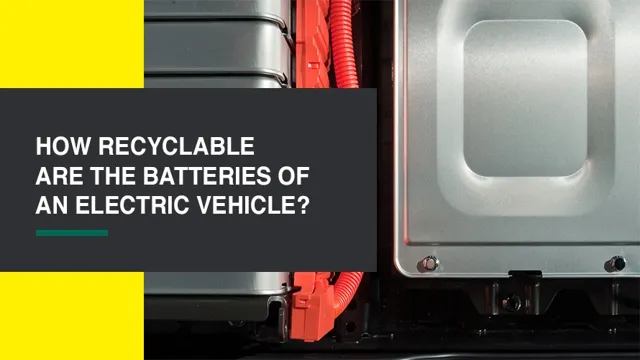
Lifespan and Disposal Process
Electric vehicle batteries are an essential component in any electric vehicle, allowing it to function efficiently without emitting harmful gases. The lifespan of these batteries varies based on the type of battery, usage, and maintenance, but most electric vehicle batteries last between 5 to 15 years. Once the battery’s lifespan ends, it is crucial to dispose of it properly and recycle its materials to reduce environmental impact.
The disposal process entails extracting useful materials such as cobalt, lithium, and nickel, which can be repurposed to manufacture new batteries. However, because these batteries contain hazardous materials, it is essential to dispose of them via certified recycle centers. These centers can extract the reusable materials while safely disposing of the hazardous substances, ensuring a sustainable future for the environment.
While electric vehicle batteries have a limited lifespan, it is essential to recognize the value they represent to our planet and ensure we treat them with the necessary precautions during disposal.
Sustainability Efforts in Recycling EV Batteries
If you’re wondering whether electric car batteries are 100% recyclable, the short answer is yes, but it’s not that simple. While the primary components of lithium-ion batteries, such as cobalt, nickel, and lithium, are recyclable, the process is complicated and expensive. Battery recycling typically involves breaking down the batteries into their component parts and then refining and purifying those materials for reuse.
Though it’s not yet widespread, recycling EV batteries is crucial for increasing sustainability efforts and cutting down on waste. In fact, some car manufacturers are already taking steps to ensure their batteries are more recyclable than ever before, working to make the process more streamlined and cost-effective. As electric cars continue to become more popular, it’s likely that the technology and infrastructure for recycling these batteries will continue to improve, making it easier to take advantage of all the sustainable benefits they offer.
Reusing and Remanufacturing EV Batteries
As electric vehicles become more popular, the issue of what to do with used EV batteries arises. The good news is that many companies are taking a sustainable approach when it comes to recycling or reusing these batteries. Remanufacturing is an excellent way to repurpose these batteries and extend their lifespan.
Companies can take used EV batteries and give them a second life by rebuilding and refurbishing them. This can reduce waste and help conserve natural resources. Furthermore, the use of recycled materials in the remanufacturing process can help reduce the carbon footprint even further.
One such company at the forefront of this sustainability effort is Renault. The French automaker has partnered with a European startup to explore how to reuse EV batteries. They are working together to develop a solution that will allow batteries to be refurbished and used in non-automotive applications, such as energy storage for homes and businesses.
Another effective method involves recycling the components of used batteries to create new ones. This process can reduce the need for extracting new raw materials and cut down on emissions, ultimately saving energy and resources. In conclusion, the Internet of Things, urbanization, and digitalization are driving the growth of the electric vehicle industry, creating a need for sustainable measures to handle used EV batteries.
With the development of recycling and remanufacturing technologies, EV batteries can live a more extended life, saving resources, and contributing to a greener future. As a consumer, it’s worthwhile to keep in mind that reusing and recycling batteries should be part of the consideration when purchasing an electric vehicle. Not only will it make the planet a better place, but it can also be a cost-effective way to power our daily lives.
Materials Recovery and Responsible Disposal
As electric vehicles (EVs) become more prevalent, concerns about the sustainability of their batteries have increased. Fortunately, there have been significant efforts to recycle and responsibly dispose of EV batteries. This has resulted in a push for materials recovery, where the materials used in the batteries are recycled and reused.
The recycling process involves breaking down the batteries into their various components such as lithium, cobalt, and nickel, which can then be refined and reused in the production of new batteries. This approach not only helps protect the environment but also creates a sustainable and cost-effective way to produce batteries. As a result, manufacturers are investing more in recycling and materials recovery programs, and even governments are introducing regulations to encourage the responsible disposal and recycling of EV batteries.
Ultimately, these sustainability efforts are essential in ensuring that EVs remain environmentally friendly and sustainable throughout their lifecycle.
Government and Industry Initiatives
As the popularity of electric vehicles continues to increase, there has been a growing concern about the proper disposal of the batteries. Fortunately, various government and industry initiatives have been implemented to promote the sustainability efforts in recycling EV batteries. In the US, for example, the Department of Energy has launched a program that aims to develop cost-effective and environmentally friendly recycling processes for lithium-ion batteries.
Similarly, car manufacturers such as BMW and Volkswagen are investing in research and development of innovative ways to reuse and repurpose the batteries. This not only reduces the carbon footprint of the EVs but also creates a circular economy where valuable resources are conserved. By implementing these initiatives, we can ensure that the benefits of electric vehicles are not outweighed by the negative environmental impact of their batteries.
Benefits and Challenges of Recyclable EV Batteries
Are electric car batteries 100% recyclable? Well, while electric vehicle (EV) batteries are not 100% recyclable, they are recyclable to a great extent. Recycling EV batteries can offer numerous benefits ranging from reducing the demand for raw materials, minimizing waste, and ultimately reducing the carbon footprint. However, recycling electric car batteries presents several challenges, such as the high cost of recycling and the safety concerns associated with handling hazardous materials during the recycling process.
Moreover, recycling electric car batteries is relatively new, and advanced technology is yet to be widely adopted, meaning the process is still in its infancy stage. Despite the challenges, the benefits outweigh the drawbacks, and recycling EV batteries remains a viable option towards a sustainable future. Therefore, it is imperative to ensure that the battery recycling process is safe, efficient, and cost-effective to promote widespread adoption and minimize the environmental impact of EVs.
Reducing Environmental Impact
As electric vehicles (EVs) continue to gain popularity, the issue of how to dispose of their batteries is becoming increasingly important. While EV batteries are long-lasting, they eventually wear out and will need to be replaced. However, simply disposing of these batteries can be incredibly harmful to the environment.
Fortunately, the development of recyclable EV batteries has the potential to greatly reduce the environmental impact of these vehicles. Recyclable batteries reduce the need for new mining operations to extract the raw materials needed to manufacture new batteries. Additionally, recycling these batteries can prevent dangerous toxins from being released into the air and water.
However, there are also challenges to the development of these types of batteries. For example, it can be difficult to develop a recycling process that is both cost-effective and efficient. Additionally, some types of electric vehicle batteries are still difficult or impossible to recycle.
Overall, while the development and use of recyclable EV batteries have the potential to greatly benefit the environment, it is important to continue researching and perfecting the technology to address these challenges.
Economic and Strategic Advantages
Recyclable EV batteries The trend towards eco-friendliness has led to an increase in the demand for electric vehicles (EVs). However, their batteries have a limited lifespan and will eventually require replacement. This has led to a rise in the demand for recyclable EV batteries.
The benefits of recyclable EV batteries are many. For one, they help to reduce the carbon footprint of EVs. Additionally, they can be economically advantageous due to their ability to provide a low-cost source of energy.
They can also help reduce the reliance on foreign oil and promote energy independence. Many governments are also investing heavily in recycling programs, which could lead to the creation of jobs and economic growth. However, there are challenges that manufacturers face when developing recyclable EV batteries.
For one, they need to strike a balance between performance, cost, and sustainability. Additionally, the process of recycling the batteries can be energy-intensive and costly. Despite these challenges, the benefits of recyclable EV batteries make them a promising option for the future of the EV industry.
Conclusion: The Future of EV Battery Recycling
In conclusion, electric car batteries are indeed highly recyclable, but much like a fine wine, they get better with age. As technology advances, so do the methods for recycling these batteries, making it not only easy, but also environmentally and economically sustainable. So, to answer the question, are electric car batteries 100% recyclable? Well, let’s just say they’re pretty darn close, and with continued innovation, who knows what the future holds.
“
FAQs
What is the recyclability percentage of electric car batteries?
While electric car batteries are recyclable, the recycling process can only recover up to 80% of the materials, leaving the remaining 20% as waste.
What are the components of an electric car battery that can be recycled?
Electric car batteries contain recyclable materials such as lithium, cobalt, nickel, aluminum, and copper.
Can electric car batteries be reused after recycling?
Yes, recycled electric car batteries can be used for secondary purposes such as home energy storage, which extends their lifespan and ensures more sustainable use.
How does recycling electric car batteries contribute to sustainability efforts?
Recycling electric car batteries reduces the need for new mining and extraction of raw materials, which reduces carbon emissions, energy consumption, and environmental impacts caused by the production of new batteries.
